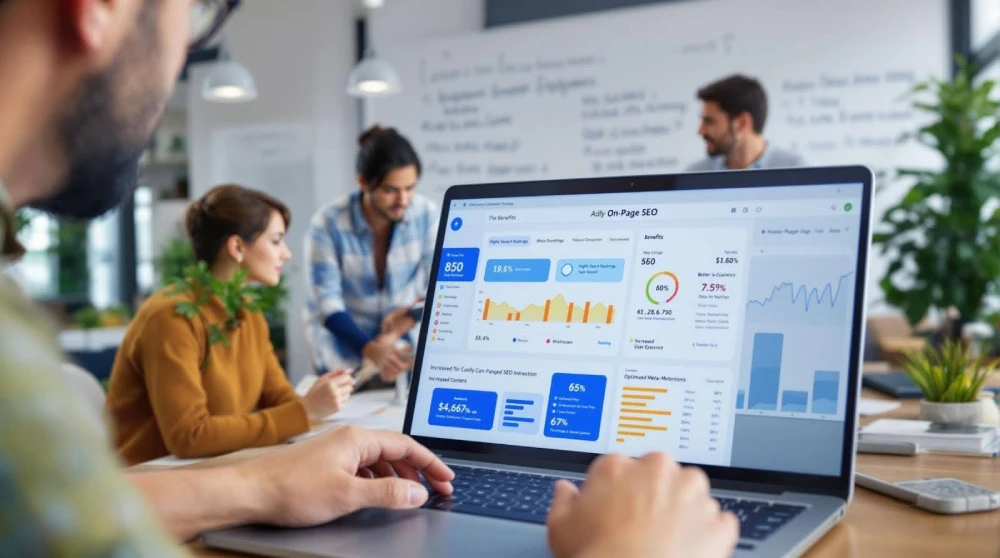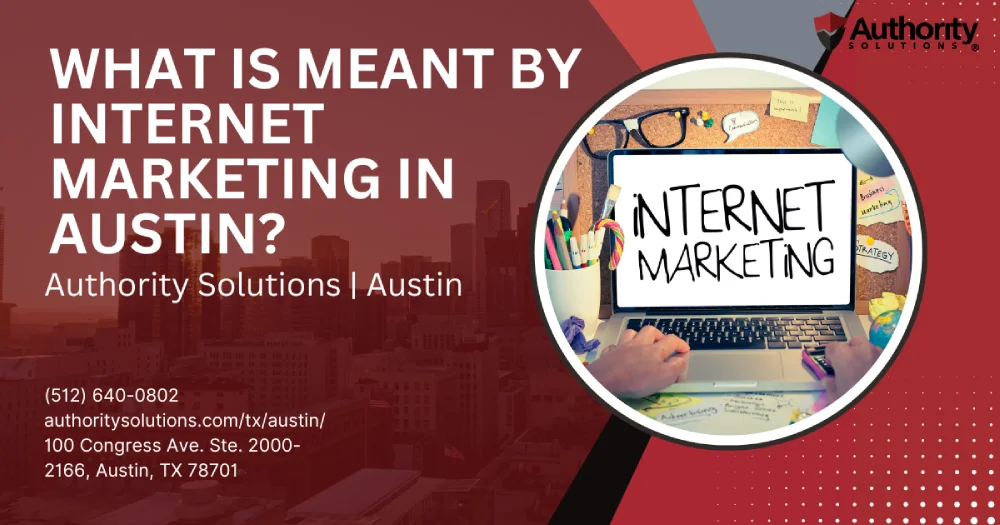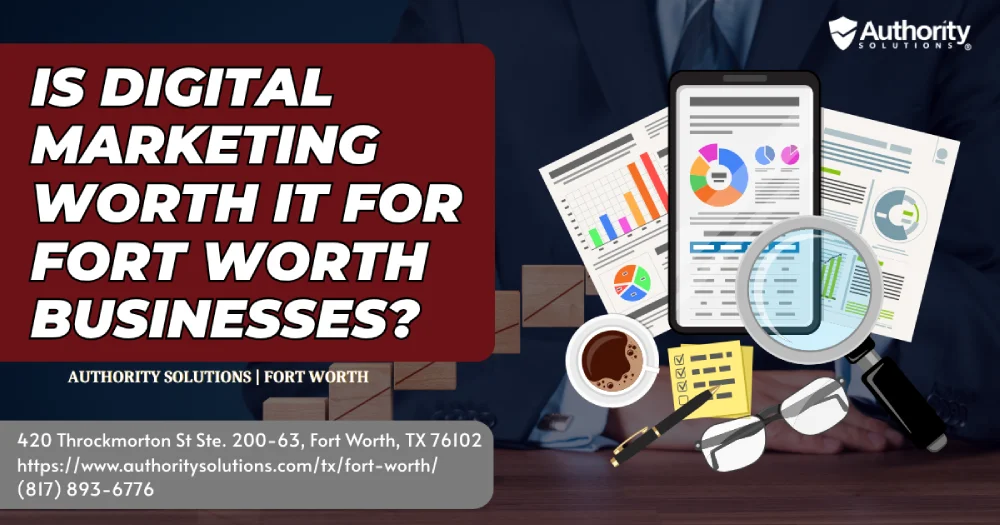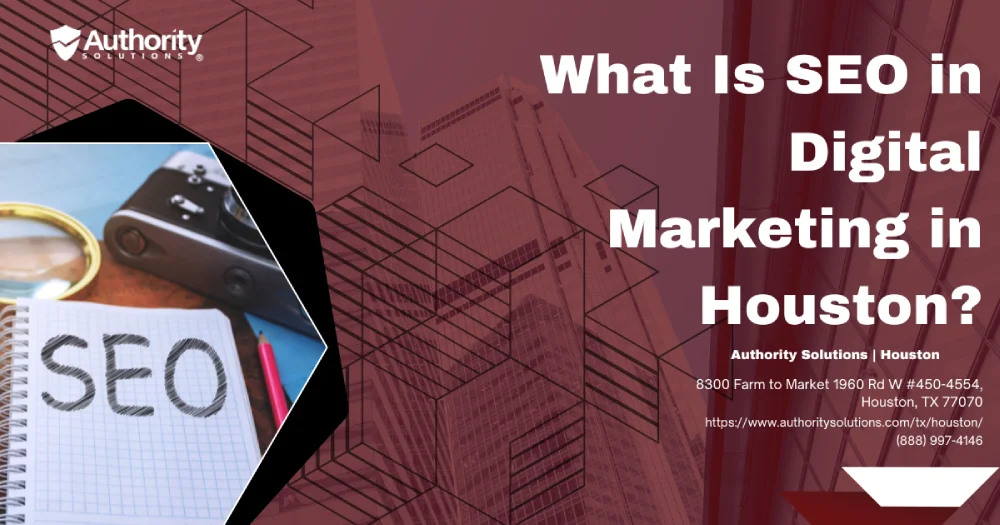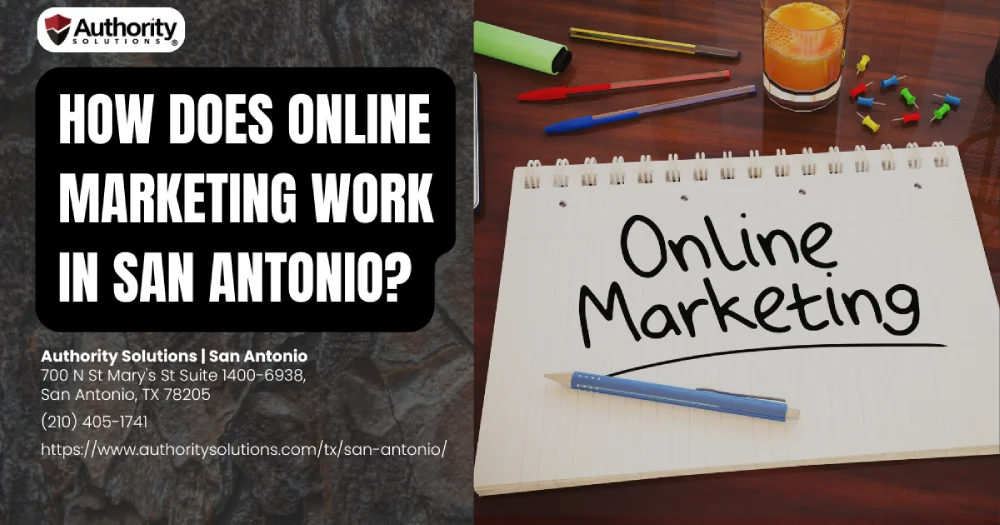Why Is On-Page SEO Important?
On-page SEO is important because it can improve your rankings and traffic for individual pages on your website targeting specific keywords. This means you’re more likely to attract visitors who are actively searching for what you offer—and more likely to convert them into subscribers or customers. So if you’re wondering why on-page SEO is important, it’s because it helps each page on your site stand on its own in search results. In this article, we’ll break down the benefits of on-page SEO and how it directly impacts your visibility, engagement, and conversions.
We’ll also discuss how search engine optimization improves brand trust, increases conversions, and establishes domain authority. By the end, you’ll understand why investing in on-page SEO is important for long-term digital success.
Key Takeaways
- On-page SEO enhances website visibility, leading to higher search engine rankings and increased organic traffic.
- Optimized content aligns with user intent, improving engagement and retention while reducing bounce rates.
- Effective on-page SEO strategies can significantly boost conversion rates by targeting the right audience at various funnel stages.
- High-quality content and optimized site structure foster brand trust and authority, leading to more backlinks and improved reputation.
- Regular updates and internal linking enhance site activity, ensuring better crawlability and overall user experience.
Improves Search Engine Rankings
On-page SEO plays an invaluable role in boosting your search engine rankings and increasing your site's visibility. By strategically using SEO keywords and optimizing content, you align with user intent, making it easier for search engines to rank your pages. Even small ranking improvements can lead to significant traffic growth—ranking third instead of fifth can increase organic clicks by 74%. Optimizing meta descriptions, internal linking, and heading structures also improves crawlability, helping search engines index your pages effectively.
Incorporating technical SEO best practices further strengthens your site's structure, ensuring that search engines can navigate and rank your content accurately. A well-optimized site enhances user engagement, leading to lower bounce rates and higher conversion rates. By implementing advanced SEO techniques, you create a solid foundation that drives sustainable growth and long-term SEO success.
Increases Traffic and Click-Through Rates (CTR)
A strong SEO strategy does more than improve rankings—it significantly boosts organic traffic and click-through rates (CTR). When your site appears on the first page of search engines, you gain more exposure, increasing the chances of attracting visitors. The top organic search result gets 19 times more clicks than paid ads, making SEO for blockchain websites a cost-effective growth strategy. Additionally, long-form content (over 3,000 words) generates three times more traffic than shorter articles, as it provides in-depth insights and improves engagement.
Optimizing meta titles and descriptions with compelling SEO keywords encourages users to click on your site instead of competitors. By addressing search intent through effective crypto SEO strategies, you ensure that visitors find relevant, high-quality content. This approach not only increases traffic but also strengthens your site's authority, leading to consistent growth.
Enhances User Experience
A fast-loading website is essential for SEO success and user retention. If your site takes more than three seconds to load, you risk losing 40% of desktop users and 53% of mobile users. By optimizing images, leveraging caching, and using CDNs (Content Delivery Networks), you can reduce load times and improve engagement. Sites that load within two seconds see higher user interaction, leading to better conversion rates.
Prioritizing mobile responsiveness ensures that your site delivers a seamless experience across all devices. Since Google factors page speed into rankings, improving load times directly enhances visibility on search engines. A well-optimized, fast-loading site keeps users engaged and encourages them to explore more pages.
Page Loading Speed
Easy-to-use navigation ensures that visitors can find what they need with minimal effort. Clear menus, breadcrumbs, and call-to-action buttons guide users through your site, reducing frustration and bounce rates. Logical page hierarchy and well-labeled links make it easy to explore related content, increasing time spent on your site.
Optimizing for mobile-friendly navigation ensures a smooth experience across all devices. Well-structured navigation improves both user satisfaction and search visibility, as it helps search engines index and rank your content more efficiently. A seamless experience encourages return visits and strengthens brand trust.
Clear Content Structure
Effective crypto SEO strategies not only drive traffic but also convert visitors into paying customers. Targeting the right SEO keywords ensures that your content reaches potential clients at different stages of the sales funnel. Customized content guides users from awareness to decision-making, increasing the likelihood of conversions. Optimized landing pages with clear CTAs (Call-to-Actions) can improve conversion rates by up to 73%.
Organic traffic from SEO for crypto companies has a 2.4% average conversion rate, making it more effective than many paid advertising strategies. By refining your SEO approach and delivering value-driven content, you attract high-quality leads that are more likely to engage and convert. Implementing advanced SEO techniques ensures a steady flow of leads and increased revenue over time.
User-Friendly Navigation
Easy-to-use navigation ensures that visitors can find what they need with minimal effort. Clear menus, breadcrumbs, and call-to-action buttons guide users through your site, reducing frustration and bounce rates. Logical page hierarchy and well-labeled links make it easy to explore related content, increasing time spent on your site.
Optimizing for mobile-friendly navigation ensures a smooth experience across all devices. Well-structured navigation improves both user satisfaction and search visibility, as it helps search engines index and rank your content more efficiently. A seamless experience encourages return visits and strengthens brand trust.
Increases Leads and Sales
Effective crypto SEO strategies not only drive traffic but also convert visitors into paying customers. Targeting the right SEO keywords ensures that your content reaches potential clients at different stages of the sales funnel. Customized content guides users from awareness to decision-making, increasing the likelihood of conversions. Optimized landing pages with clear CTAs (Call-to-Actions) can improve conversion rates by up to 73%.
Organic traffic from SEO for crypto companies has a 2.4% average conversion rate, making it more effective than many paid advertising strategies. By refining your SEO approach and delivering value-driven content, you attract high-quality leads that are more likely to engage and convert. Implementing advanced SEO techniques ensures a steady flow of leads and increased revenue over time.
Provides Full Control and Cost-Effectiveness
A strong SEO strategy allows you to control how your website is optimized, ensuring long-term success. Unlike paid ads, which require ongoing investment, SEO gives you a competitive advantage with lasting results. You can refine keywords, content, and meta tags to align with your business goals and audience needs.
Additionally, on-page SEO is more cost-effective than other digital marketing methods. Whether you choose in-house optimization, freelancers, or agencies, SEO remains a scalable solution that fits different budgets. Investing in SEO tools like Google Search Console provides valuable insights that help refine your strategy, maximizing ROI without excessive costs.
Improves Page and Domain Authority
Improving your page and domain authority is essential for enhancing your site’s visibility. By implementing effective internal linking strategies, utilizing structured data markup, and consistently updating your content, you can enhance your authority and credibility. These practices not only attract more visitors but also signal to search engines that your site is a significant resource. Additionally, optimizing your site’s loading speed can improve user experience, further contributing to your overall authority. Regularly assessing and refining your strategies is crucial for long-term commitment to sustained success.
Internal Linking Strategies
Internal linking strengthens your site’s authority by distributing link equity across pages. Using descriptive anchor text and linking to relevant content improves navigation and helps search engines understand your site's hierarchy. Linking high-authority pages to lower-performing ones boosts their visibility and ranking potential.
Regularly updating and auditing your internal linking structure ensures that users and search engines can access your most important content. This strategy improves SEO success, increases engagement, and enhances your site's credibility.
Structured Data Markup
Implementing structured data markup helps search engines categorize and display your content effectively. Schema markup enables rich results, such as featured snippets and FAQ boxes, increasing click-through rates. This optimization makes content more accessible to both users and search engines that your content is relevant.
By providing clear metadata, you enhance indexing accuracy and improve your chances of ranking higher. Structured data is a powerful tool that increases visibility on search engines and strengthens site credibility.
Content Quality and Updates
Content quality and regular updates are essential for maintaining your website’s authority and relevance. By implementing a solid content strategy, you create worthwhile material that connects with your audience targeting goals. Fresh content signals to search engines that your site is active, enhancing your rankings and attracting new visitors. Google’s Freshness Algorithm rewards timely updates, helping you tap into trending topics and keywords. This not only improves user experience by providing relevant information but also reduces bounce rates.
Furthermore, well-researched content that adheres to the E-E-A-T principle strengthens both page and domain authority. Regularly refreshing your content builds topical relevance and drives engagement, ultimately leading to better conversions and sustained growth for your site. Additionally, understanding how search engines evaluate freshness is crucial for determining the right frequency of updates to maximize your content’s impact.
Boosts Brand Reputation and Trust
Regular content updates ensure that your site remains relevant and competitive. Google's Freshness Algorithm prioritizes updated content, making frequent revisions essential for sustained rankings. Well-researched, high-quality content that aligns with user search intent strengthens your site’s authority.
Updating old articles with new insights and SEO keywords keeps your site competitive. Fresh content increases engagement, reduces bounce rates, and signals search engines that your site is active and valuable.
Why A Digital Marketing Agency Is Needed?
In today’s digital-first world, simply having a website isn’t enough. Without a strategic digital marketing approach, your site may struggle to rank, resulting in lost opportunities for traffic and conversions. A digital marketing agency specializes in crafting tailored SEO strategies that ensure your business stays visible in search results. With constant search engine algorithm changes, professional expertise is essential to maintain rankings and keep your online presence competitive.
Partnering with a digital marketing agency provides access to the latest SEO tools and insights. From keyword research to technical SEO, experts analyze and optimize your site for maximum performance. Agencies also track key performance indicators (KPIs) to measure success, ensuring your strategy evolves with market trends. By leveraging their expertise, you gain a competitive edge in your industry.
Beyond SEO, a digital marketing agency helps integrate content marketing, social media, and paid advertising into a cohesive strategy. This multi-channel approach amplifies your brand’s visibility across various platforms. A well-rounded strategy increases engagement, enhances customer experience, and ultimately drives higher conversions.
Additionally, agencies offer scalability and adaptability, making them ideal for businesses of all sizes. Whether you're a startup looking to establish your online presence or a well-known brand aiming to maintain dominance, a digital marketing agency provides the flexibility and expertise needed to achieve long-term success.
Why You Need Authority Solutions®
Authority Solutions® stands out as a trusted partner in digital marketing, offering tailored strategies to elevate your brand’s online presence. With a team of SEO specialists, we ensure that your website is fully optimized for search engines, resulting in higher rankings and increased traffic. Our data-driven approach guarantees measurable results, helping businesses dominate their industries with cutting-edge SEO techniques. From local SEO to content marketing, we craft strategies designed for long-term success.
We don’t believe in one-size-fits-all solutions. Our team conducts in-depth research to understand your business goals, target audience, and competition. This allows us to develop customized strategies that align with your brand’s unique needs. Whether it's improving your website’s technical SEO or optimizing content for search intent, we implement industry-leading practices to ensure maximum visibility.
At Authority Solutions®, transparency and accountability drive our process. We provide detailed reports and regular performance updates, so you always know how your website is performing. Our hands-on approach ensures that every aspect of your digital strategy is optimized for success. By continuously monitoring and adjusting tactics, we keep your business ahead of the competition.
Beyond SEO, we offer comprehensive digital marketing solutions, including website design, conversion rate optimization, and social media management. Our holistic approach ensures that every aspect of your online presence works together seamlessly. When you partner with Authority Solutions®, you gain a dedicated team focused on delivering results and driving sustainable growth.
Conclusion
On-page SEO is the foundation of a successful digital strategy, ensuring that your website ranks higher, attracts the right audience, and delivers an exceptional user experience. By optimizing keywords, improving content structure, and enhancing page speed, you create a seamless journey for visitors and search engines alike. A well-optimized website builds credibility, increases conversions, and strengthens brand trust, making it a powerful asset in a competitive online landscape. Investing in on-page SEO is not just about rankings—it’s about long-term growth, visibility, and sustained business success.
At Authority Solutions®, we specialize in crafting data-driven SEO strategies that drive real results. Our team of experts takes a tailored approach to optimizing your website, ensuring that every element aligns with best practices and industry standards. From keyword research to content optimization and technical SEO, we provide comprehensive solutions that enhance your digital presence. Partner with Authority Solutions® today and let us help you dominate search rankings, increase engagement, and grow your business.
Frequently Asked Questions
Why is on-page SEO important
On-page SEO is important because it helps improve the rankings and traffic of individual pages on your website by targeting specific keywords. This optimization ensures your content is aligned with what users are searching for, increasing the chances of attracting highly targeted traffic—visitors who are more likely to convert into subscribers or customers.
What is the difference between on-page SEO and off-page SEO?
On-page SEO refers to optimizations made directly on your website, such as improving the content of each page, optimizing the title of the page, and enhancing site structure. It focuses on on-page elements like keyword placement, internal linking, and page speed to positively impact SEO. Unlike off-page SEO, which refers to external factors like backlinks and social signals, on-page SEO efforts directly affect how search engines interpret and rank your content. Both on-page SEO and off-page SEO are essential for a well-rounded digital marketing strategy.
Why is on-page SEO important for search rankings?
On-page SEO is important because it tells search engines what your content is about, allowing them to rank it accordingly. Optimized page content, title tags, and meta descriptions help distribute page authority throughout your site, improving overall visibility. On-page optimization also enhances user experience and SEO by making your site more accessible, readable, and engaging. Without strong on-page SEO practices, your website may struggle to rank higher on search results.
What are the most important on-page SEO elements?
Important on-page SEO elements include optimized title tags, meta descriptions, and high-quality page content. Other key SEO factors include internal linking, mobile-friendliness, and page speed, which all impact user experience and SEO rankings. The content of your pages should be well-structured, using headers and keywords effectively to help search engines understand the summary of the page content. Focusing on on-page SEO best practices ensures that every page on your site is optimized for search visibility.
How does on-page SEO positively impact website traffic?
On-page SEO is the process of optimizing various elements on a webpage to make it more search engine-friendly, driving traffic to your site. By improving the content of the page, using relevant keywords, and structuring internal links, you increase the chances that users will click on your link. An optimized site also improves user experience, keeping visitors engaged and reducing bounce rates. The better your on-page SEO efforts, the more likely your site will attract quality traffic.
What is the role of content in on-page SEO?
Content on the page is one of the most important elements of on-page SEO because it helps search engines to understand the topic and relevance of your website. High-quality content of your pages keeps users engaged and encourages them to click through to your page. On-site SEO efforts should focus on creating valuable, well-structured content that aligns with user intent. The better your content is optimized for SEO, the more it positively impacts SEO rankings.
How does internal linking help with on-page SEO?
Internal linking is a particularly important part of on-page SEO because it helps distribute page authority throughout your website. Linked pages within your site allow search engines to crawl and index content more efficiently, improving visibility. It also enhances user experience by guiding visitors to important pages, increasing engagement and time spent on your site. A strong internal linking strategy can significantly improve your on-page SEO value.
What is the difference between on-page and off-site SEO?
The difference between on-page and off-site SEO is that on-page SEO focuses on optimizing content on the page, while off-site SEO involves external factors like backlinks and social media. On-page SEO efforts ensure that every page on your site is optimized for search engines, while off-site SEO strategies build credibility and authority. Off-page SEO refers to activities outside of your website, such as guest blogging and influencer outreach. Both are essential for a successful SEO strategy, but focusing on on-page optimization lays the foundation for higher rankings.
How can poorly optimized on-page elements negatively impact SEO?
Negatively impacting SEO can happen when important on-page SEO elements are overlooked or misconfigured. Issues like slow loading speeds, duplicate content, or poorly structured text of the page can reduce rankings and user engagement. If search engines struggle to understand the summary of the page content, they may not rank it as highly as well-optimized competitors. Ensuring that your website is optimized for SEO with the best on-page SEO practices can prevent these issues.
Where can I learn how to do on-page SEO effectively?
To learn how to do on-page SEO effectively, start with a comprehensive guide to on-page SEO that covers key strategies and best practices. Resources from industry experts explain how to optimize title tags, improve on-page SEO factors, and create engaging content. You can also take advantage of SEO courses, webinars, and case studies to stay updated on evolving SEO practices. By continuously refining your on-page SEO best strategies, you can improve your rankings and increase traffic to your site.

